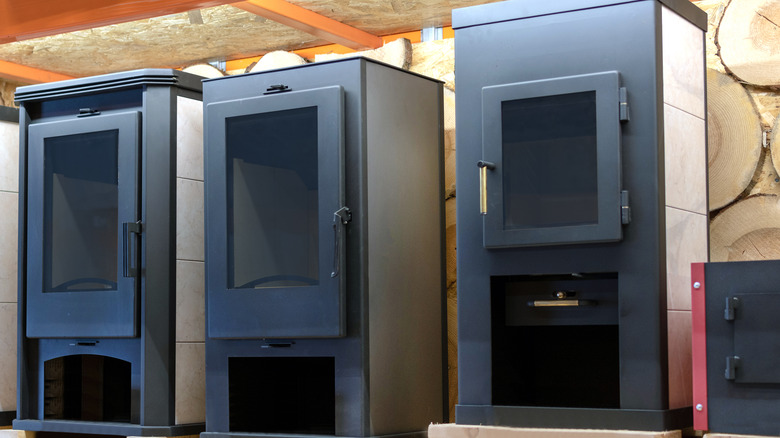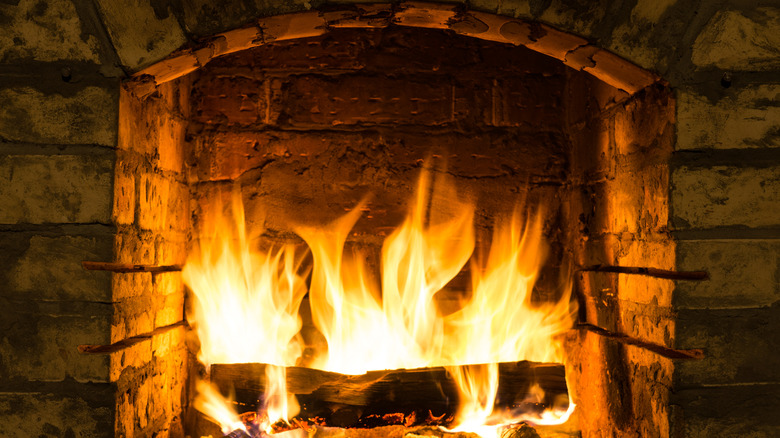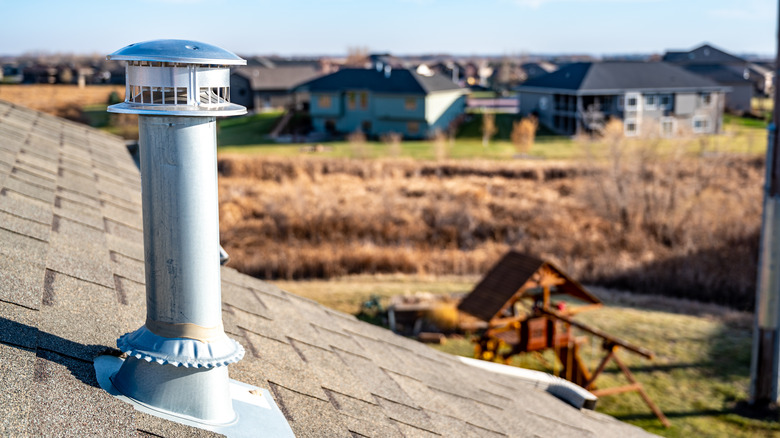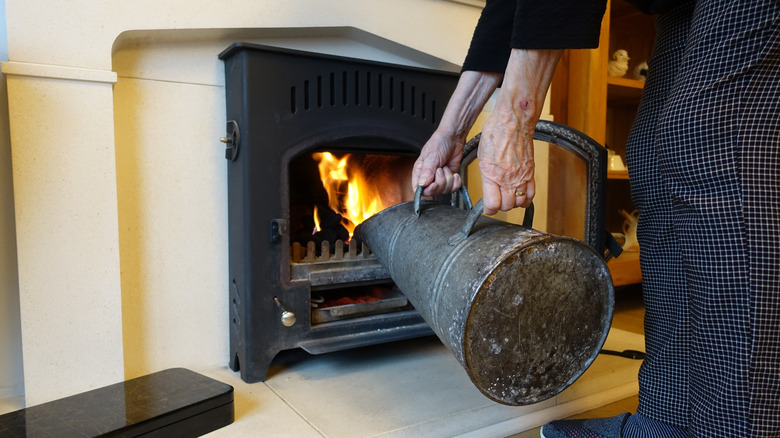How Much Does A New Furnace Cost?
If you have ever experienced a cold winter season you will apreciate the benefits of a home furnace. One of the most common kinds of furnace is a gas fireplace, however, they also include boilers that heat water for cental heating and systems that provide heating ventilation and air conditioning (HVAC). Wheather you're building your home, replacing an old or damaged furnace, or just flirting around with some new decor ideas, it is important to understand the different types of furnaces available and the factors that affect their cost.
Fire & Ice estimates that a new furnace costs between $3,000 and $7,600 depending on its capacity and fule source. If you're into specifics, the experts at Forbes pegged the price of a HVAC instalation at $15-$18 per square foot. Moreover, Home Guides notes that purchasing individual heating and cooling apliances can cost significantly more.
Factors for cost
There are a several important factors that affect the cost price of a furnace, from its size and efficiency to its source of energy.
Furnace size
Generally speaking, A furnace needs to be the correct capacity for the size of your home. For instance, if you install a furnace that is too small, It will need to be permanently set to its maximum temperature setting, which will reduce its efficiency. conversely, purchasing a furnace that is too big will increase the initial outlay and will likely be more expensive to run.
Type of efficiency
Another determining factor in the price of your furnace is its level of efficiency. HomeServe notes that while mid-range furnaces are cheaper to purchase, they only have an annual fuel utilization efficiency (AFUE) rating of 80% to 89%, which makes them more expensive to use. High-efficiency furnaces, on the other hand, tend to cost more and have higher installation and repair costs. HomeServe recommends that a furnace with a 90% to 95% AFUE rating strikes a good balance between efficiency and overall costs.
Type of energy source
One of the most important factors for cost is the type of fuel. There are a several options to choose from depending on the location of your home and what's available, including propane, natural gas, electricity, and even oil. According to This Old House, the most expensive furnaces are fueled by oil, with prices ranging from $4,300 to $9,200 including installation, whereas a similar electric or gas furnace would cost between $1,600 and $6,200.
Additional costs
Aside from the initial purchasing cost, there are several other factors to consider, including installation, warranty, maintenance fees, and annual servicing and repairs.
Installation cost
Unfortunately, installing a new furnace isn't something you can do yourself, even in your own home. In the U.S, anybody who works with heating and ventilation equipment must be licensed. Fire & Ice suggests that for the installation of a new furnace, you should set aside about $1,000 or slightly more. The installation will take around 8 hours depending on ducting, electrical, and fuel connections.
Warranty plans
One of the consumer-friendly approaches to purchasing a new furnace is the warranty that comes with the product. According to House Method, some warranty policies require the owner to pay an annual stipend to the manufacturing company, which will, in turn, cover the cost of repairs within this period. This Old House notes that this could cost about $100 per year on average.
Maintenance Costs
Finally, the regular servicing and maintenance costs. This includes anything from a yearly inspection to purchasing oil or gas. AVS Heating and Air Conditioning explain that depending on the state of your furnace, annual cleaning and servicing will cost between $100 and $300. The monthly energy bills will depend on the fuel type and how often you use the furnace.
Cost of different types of furnace
There are four major types of furnaces, with each one having its own pros and cons. Choosing the best type of furnace to heat your home will depend on what type of fuel is available in your location, the size of your home, and whether you are replacing an existing furnace or installing a new one.
Gas furnace
Gas furnaces tend to be the most popular of the four, as they come in multiple forms and can be up to 98% efficient in heating your home. In terms of price, purchasing a natural gas-fired furnace will cost anything between $900 and $4,000, notes Angi, with the installation coming in at $1,000 to $3,000.
Electric furnace
Sleek, modern, and with no fumes, an electric furnace is the cheapest to install and purchase. According to Modernize, the price of an electric furnace ranges from $850 to $1,500, while installation costs are in the same range as a gas furnace. However, while this might seem like a good deal at first glance, you will probably end up paying way more in electric bills, which HVAC Seer notes, can cost as much as $330 per month!
Propane Furnace
Propane is a byproduct of oil and gas, states HVAC. Since it can be purchased in tanks, it is a good option for homes without an oil or gas supply. To purchase a propane furnace will cost around $600 to $2,800 with the installation costing an extra $1,000 to $2,600 notes Home Guide. However, yearly expenditure on propane can be two or three times more expensive than natural gas.
Oil Furnace
Oil furnaces are the most expensive to purchase, maintain, and run. Home Guide writes that the average home would consume about $1,000 to $1,750 worth of oil per year. Not to mention the purchase and installation costs, which are $1,200 to $4,000 and $1,000 to $3,000, respectively.
Why you need a new furnace?
There are many reasons why you may need a new furnace. However, the most common reasons are usually inefficient heating, a spike in energy bills, or uneconomical repair costs.
Age
A new furnace should give you 15 to 30 years of use if it's maintained correctly, says Valley Service. However, this depends on the amount of use and the design of the heating system. Home Serve suggests that if you have had to do repairs more than twice within the past year, it is time for you to consider a replacement.
Inefficient heating
There could be a range of reasons why you are not getting sufficient heat from your furnace. The most basic one is that the furnace is old and has received poor maintenance, says Duall Heating & Cooling. Another factor could be the furnace has the wrong capacity for your home. If you plan to install a new furnace, first measure your home to calculate the required heat capacity, says SFGate.
Raising heating bills
If you are experiencing a spike in your electric bills, the most likely cause is a fault with your furnace. This may only require a service to solve the problem, however, it may also indicate something more serious. What this means, in the long run, is that it is necessary to leave the heater on for longer hours, thus commanding more in running costs, says Barker Air Conditioning & Heating.
Noises or odors
If you notice strange noises coming from your furnace it could be general wear and tear or a sign that there is a problem, explains TR Miller. Strange smells, however, should be taken seriously. Faulty burners and blocked air vents will lead to incorrect fuel consumption, which may cause harmful fumes to be released.
Benefits of a furnace
If you're still wondering if you should choose a furnace over other means of heating your home, consider these benefits.
Furnaces are flexible
According to Sullivan Heating & Cooling, furnaces offer a lot of options because they come in so many different shapes, sizes, and designs. For this reason, you will always find the perfect one for the space available in your home. Also, they can be powered by gas, electricity, propane, or oil, which means you can choose an energy source that's readily available and cost-effective.
Fast heating
Comfort First Heating & Cooling explains how furnaces heat your home faster than other heating systems. So, if you have a large home in a cold region, a furnace is a wise investment as it allows you to heat every room at once without waiting for the heat to build up.
Quiet and long-lasting
Sadly, many older heating systems vibrate and make noises during operation. But with a modern furnace, Modern Air Conditioning & Heating writes, you will have nothing to worry about because these systems generally operate silently. Also, furnaces last longer and you can therefore get more value from your investment.
Reduced energy loss
With the latest designs in energy-efficient furnaces, only 2% to 5% of the energy is lost while the remaining amount warms your home. This means that a new furnace will potentially save you money, while you get more in terms of warmth and comfort.





